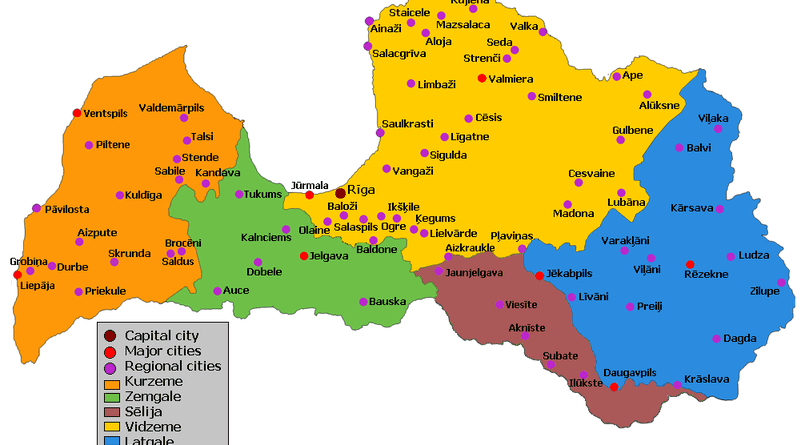Is Moscow About To Play The Latgale Card Against Latvia And The Balts? – OpEd
By Paul Goble
The Baltic countries have good reason to fear that should Vladimir Putin get away with his aggression against Ukraine, he will turn his attention to the Baltic countries that he insists must give up their NATO memberships and become neutral countries with close ties to the Russian Federation.
(On that danger, which will undoubtedly grow if Putin is not stopped in Ukraine, see windowoneurasia2.blogspot.com/2022/03/a-worrisome-trend-moscow-increasingly.html and a more recent pro-Moscow article about how supposedly abused ethnic Russians are in Latvia (http://www.stoletie.ru/zarubejie/latvija_travla_russkih_147.htm).)
But just as Putin began his aggression against Ukraine not by taking on the entire country but instead by his Anschluss of Crimea and establishment of breakaway and Russian dominated statelets in the Donbass, so too he may approach the Baltic countries in the same way. Indeed, there is a clear precedent for that.
It involves Latgale, an impoverished region in eastern Latvia next to the Russian border of approximately 250,000 people whose cities are still dominated by ethnic Russians and whose rural areas are divided between Catholic Poles and Orthodox Latgals, the original indigenous population.
Since 1991, Russians in Moscow and in Latvia have occasionally raised what many call “the Latgal card” with interest in that possibility increasing during Putin’s time (windowoneurasia2.blogspot.com/2021/06/moscow-again-urged-to-play-latgal-card.html, windowoneurasia2.blogspot.com/2020/12/moscow-again-wants-to-play-latgal-card.html and windowoneurasia2.blogspot.com/2016/02/moscows-real-interest-in-latgals-to.html).
Most Latgals have clearly indicated that they are not interested in a Russian embrace. They would like more investment in their region and greater respect for their national distinctiveness but that doesn’t mean they want to become part of Russia (windowoneurasia2.blogspot.com/2012/12/window-on-eurasia-latgalia-catalonia-on.html and windowoneurasia2.blogspot.com/2017/05/latgals-want-their-place-in-sun-but-in.html).
But in their case as has been the case in Ukraine’s Crimea and Donbass, the Russian side has very little interest in what the inhabitants want as it views them not as subjects of politics but as potential pawns that it can use for its own purposes, especially given that some in Russia and the West who know little about these regions will accept Kremlin claims.
And Moscow may be encouraged to try the Latgale card because of the results of a poll in Latgale about the war in Ukraine, a survey that found residents of that region are only half as likely to support Ukraine as Latvians as a whole (thinktanks.by/publication/2022/03/22/tolko-33-protsenta-naseleniya-latgalii-podderzhivaet-ukrainu.html).
In part, of course, this poll which gave results by region rather than by ethnic group reflects the fact that the share of ethnic Russians in Latgale is higher than in other Latvian regions. But Moscow is likely to play up both that Russian component and the supposed anger of Latgals at how Riga is treating them.
This may seem like a small issue to most outsiders, but one should remember that a decade ago, few talked about the Donbass. After Putin made it the central axis of his attack on Ukraine, however, that changed. Latgale bears watching lest he use the same page from his playbook there.

